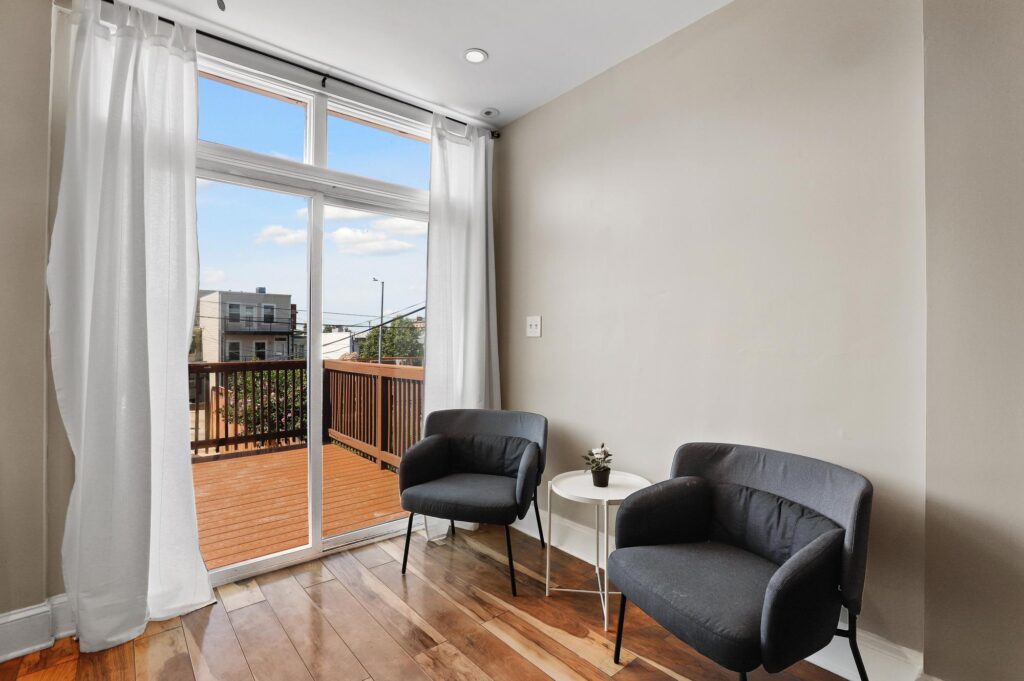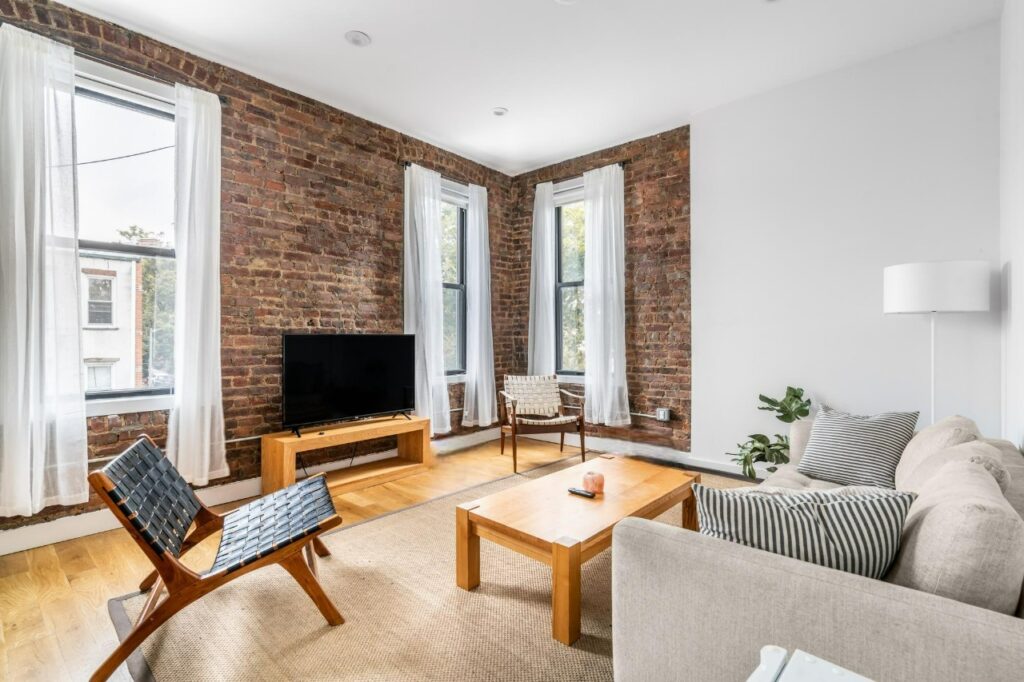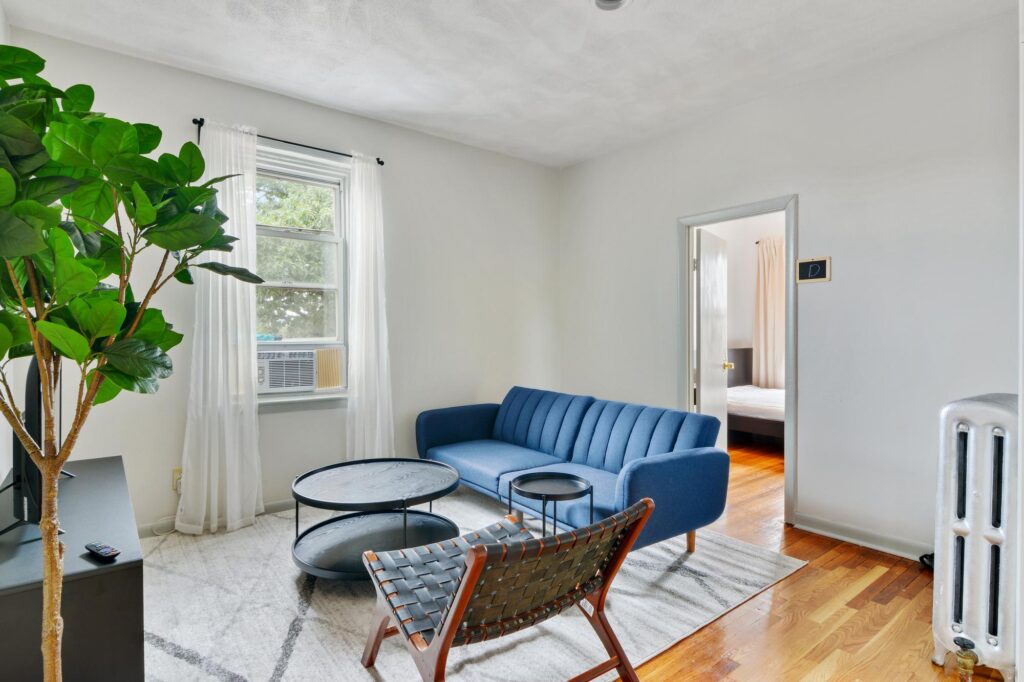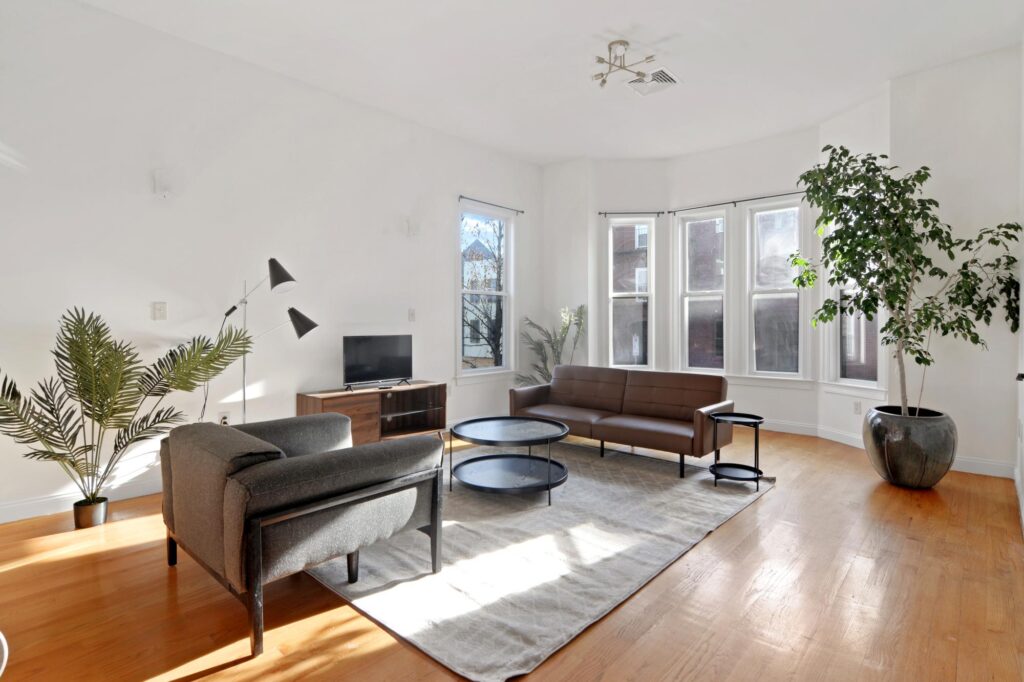Estimated reading time: 10 minutes
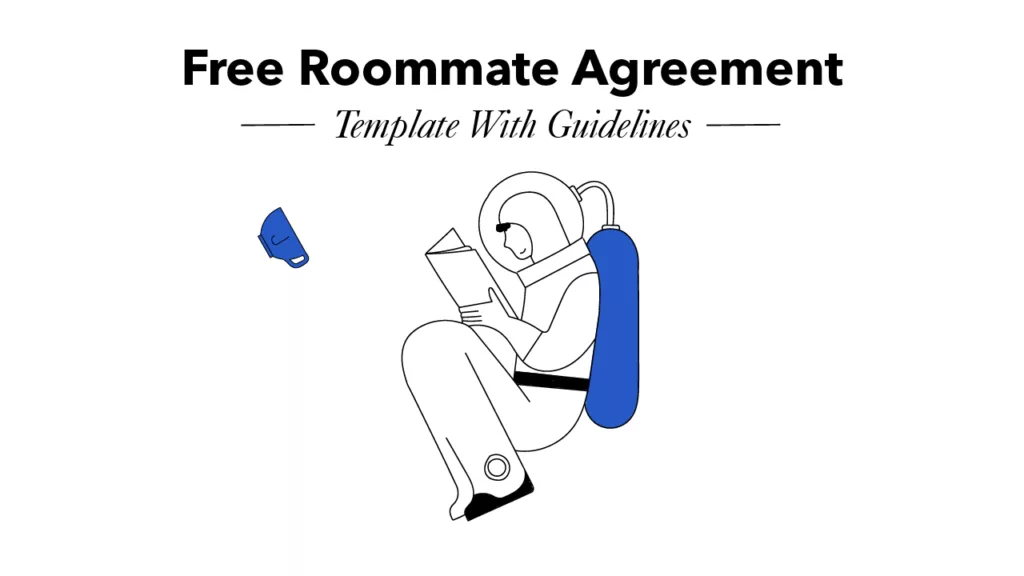
Moving in with a roommate? Whether you’re heading to college, sharing an apartment in NYC, or renting an apartment in Boston or Washington DC, having a roommate agreement is pivotal. It’s not just about sharing rent and utilities; it’s about setting clear expectations to ensure a harmonious living environment. Here’s everything you need to know.
Disclaimer: This guide and the template itself are suggested references and do not constitute legal advice. Always consult an attorney prior to signing any documents.
DOWNLOAD FREE ROOMMATE AGREEMENT TEMPLATE
Or, just copy and paste it.
ROOMMATE AGREEMENT TEMPLATE
This roommate agreement (this “Agreement”) is entered into by the individuals (the “Roommates”) who signed a lease agreement (the “Lease”) as tenants for the property located at ________________ [insert address of property] (the “Property”) and who sign this Agreement. This Agreement shall be effective as of the same date that the Lease is effective. By entering into this Agreement, the Roommates’ goal is to ensure their mutual understandings and expectations concerning the responsibilities of all of the Roommates leasing the Property.
This Agreement runs concurrently with the Lease for the Property, which is effective as of _______________ [insert date the lease starts] and and ends when the Lease ends, including if the Lease is renewed or extended by the Roommates.
1. SECURITY DEPOSIT: The Roommates paid the owner of the Property (or someone acting on the Owner’s behalf, the “Landlord”) a security deposit equal to $_____ [insert amount of security deposit]. Individually, we each paid a portion of the security deposit as follows:
| Roommate Name | Amount |
| $ | |
| $ | |
| $ | |
| $ | |
| $ | |
| $ | |
| $ |
[insert or delete additional lines as needed]
When the Landlord returns the security deposit, each Roommate will receive back the amount the Roommate paid, and if the Landlord withholds any amounts when returning the security deposit, it shall be deducted proportionally with the amounts paid by the Roommates. However, if one or more particular Roommate caused damage to the Property or is the reason for the withholding, such amount shall be deducted from the applicable Roommate(s). The same applies to any utilities paid for by the Roommates.
2. RENT: The Lease requires that the Roommates pay $___ [insert total amount of monthly rent]. Since the Roommates may have different use of the bedroom, closet and bathroom space, the Roommates agree to pay the following each month:
| Roommate Name | Monthly Amount |
| $ | |
| $ | |
| $ | |
| $ | |
| $ | |
| $ | |
| $ |
Rent must be paid by [check] to the Landlord on the __ [pick a day] day of each month.
3. HOUSEHOLD SUPPLIES: We will keep a list of supplies purchased by each roommate, like cleaning supplies, paper towels, toilet paper, cleaning fluids, dish detergent, foil, plastic trash bags, scrub brushes, and any other goods needed for the home which will be shared by all roommates. Whoever buys supplies will be entitled to reimbursement from the other roommates if the purchase and price is reasonable.
4. KITCHEN USE AND CLEAN-UP: (check one of the following)
___ Food expenses will be shared equally by all roommates.
___ Each roommate will but they own food.
Food may not be borrowed without the purchaser’s approval. Each roommate will have storage space for his/her groceries. Roommates may choose to share in meal preparation and clean up. Each roommate will clean up the kitchen after his/her use.
5. PERSONAL PROPERTY: One Roommate may not borrow another Roommate;s property without permission. Any exception(s) to this rule will be clearly stated and agreed upon, and the roommate who owns the property retains the right to change his/her mind about sharing his/her property. Any personal property that is borrowed will be used respectfully and returned in the same condition. If any damage is done to a roommate’s personal property, the roommate(s) responsible for causing the damage will compensate the roommate who owns the personal property for his/her loss.
6. CLEANING: Each roommate agrees to share the responsibilities of cleaning and maintaining the residence, which may include dusting, vacuuming, emptying trash, mopping/sweeping floors, cleaning bathrooms, and other duties.
7. CLEANING SCHEDULE: (check one)
____ Each roommate agrees to the attached cleaning schedule (attach cleaning schedule). The schedule indicates when each roommate will complete his/her assigned cleaning and maintenance duties.
____ All roommates will work together [“at a designated time”] to clean/maintain the residence.
8. ADDITIONAL AGREEMENT TERMS: Consider adding in your own words specific provisions governing the following issues that do come up among Roommates.
- Smoking/alcohol/drugs
- Parking
- Overnight guests
- Cleanup after parties/guests
- Music and speakers
- Keys
- Quiet hours for studying and sleeping
10. THE LANDLORD. The Landlord did not and will not sign this Agreement and is not bound by it. Therefore it does not affect the terms of the Lease.
This Agreement represents the complete and final understanding of this Agreement and any oral or other discussions are void and of no effect unless agreed to in writing signed by all of the Roommates.
The Roommates agree to the above:
ROOMMATE SIGNATURES:
| Roommate Name | Signature |
Why is it important to establish a roommate agreement when moving in with friends?
- Conflict Prevention: Clear expectations mitigate potential issues before they surface.
- Financial Clarity: Every roommate understands their financial obligations from the start.
- Resolution of Ambiguities: The agreement directly addresses uncertainties related to responsibilities.
- Consistent House Rules: An agreement can set consistent guidelines for things like guests, noise levels, and shared spaces, ensuring everyone is on the same page.
- Procedure for Breaking the Lease: In case one roommate needs to move out earlier than agreed, the procedure and responsibilities can be pre-defined.
- Setting Communication Norms: The agreement can emphasize regular check-ins or meetings to discuss any concerns, promoting open communication.
- Pet Policies: If a roommate has or wants a pet, the agreement can address related responsibilities, costs, and potential issues.
- Renewal Terms: The agreement can clarify under what conditions the lease would be renewed and the process for doing so.
What Is A Roommate Agreement?
A roommate contract/housemate agreement/roommate living agreement, often interchangeably referred to as a roommate lease or rental agreement, is a written contract between individuals who share living space. While many might think a casual chat is enough, a written agreement offers clarity and serves as a point of reference in case of disputes.
What To Include In Your Roommate Agreement?
Core concerns to address include:
- Rent: Specify amounts and due dates.
- Utilities: Detail how they will be split and paid.
- Shared spaces: Define rules for communal areas.
- Conflict resolution/rules: Outline steps for addressing disagreements.
Additional considerations:
- Guest policies: Rules regarding overnight guests.
- Chores and maintenance: Who is responsible for what tasks.
- Personal property: Boundaries and usage permissions.
- Termination: Process and notice period if someone wants to leave.
The Advantage of A Written Agreement
Consider several scenarios that underline the importance of a written agreement:
- Utility Bills: Your roommate verbally commits to splitting the utility bills. Three months in, they deny ever making such a commitment. Without a written record, you’re in a challenging position, relying on memory and goodwill.
- Guest Policy: You remember discussing and agreeing on not having guests over for more than three consecutive nights. But when your roommate’s friend crashes on your couch for a week, they claim the conversation never happened. A clear stipulation in a written agreement would have preempted this dispute.
- Chore Division: After verbally agreeing to alternate weeks for cleaning the common areas, you find yourself doing it for the third week in a row. When confronted, your roommate insists it’s still their week based on their count. A written log or schedule would provide clarity and avoid such confusion.
- Room Swapping: Halfway through your lease, your roommate wants to swap rooms, citing a previous conversation where you allegedly agreed. With no record of this, tensions can flare, and conflicts can arise.
- Early Termination: Your roommate suddenly wants to move out before the lease ends, insisting that you both agreed it would be okay as long as they found a replacement. Without written terms detailing the conditions and repercussions of early termination, you might be left in a bind.
In all these instances, a written roommate agreement serves as concrete evidence of the terms discussed and agreed upon, significantly reducing potential disagreements and ensuring a smoother cohabitation experience.
Enjoy a hassle-free, high-end rental experience for stays of one month or longer in major US cities.

Fully-furnished rooms and apartments with flexible lease. Apply today and move in tomorrow.
Crafting Your Own Roommate Agreement
Here’s a simple guide:
- Identify Parties Involved: Mention everyone’s full names, ensuring there’s clarity about the individuals bound by the agreement.
- Rent and Security Deposits: Clearly define the rent amount each party is responsible for and terms related to security deposits.
- Utilities and Bills: Decide how you’ll split utilities. Will it be even or based on usage?
- House Rules: Discuss and jot down rules regarding guests, noise, cleanliness, and any other concerns.
- Shared Responsibilities: List out chores and maintenance tasks and who’s responsible for each.
- Conflict Resolution: Lay down steps to resolve disputes, perhaps through a mediator or periodic check-ins.
- Termination: Discuss what happens if someone wants to move out or abandon the agreement. Will there be penalties?
- Notarization: While not a strict requirement, having your roommate agreement notarized adds an extra layer of authenticity.
Making It Legally Binding
To make it legally binding, both parties should sign the agreement. You can sign electronically by using one of the free tools like Hellosign or Docusign.
While the agreement itself has weight, it’s different from a lease with the landlord. The latter holds legal weight for the property, while the roommate agreement sets terms between occupants.
Does It Need To Be Notarized?
No. Notarization is not necessary, but it does provide an extra layer of validation. However, even without notarization, as long as both parties sign the document, it stands as a testament to the agreement’s terms.
What If Your Roommate Abandons The Agreement?
If a roommate suddenly abandons a lease agreement, the remaining parties might be left to cover the costs. Hence, it’s essential to mention in the agreement the consequences of such actions and possibly even include a backup plan.
Conclusion
A roommate agreement is more than just a piece of paper; it’s a tool for fostering a positive living environment. With clear expectations and agreed-upon terms, roommates can focus more on building a memorable living experience rather than squabbling over misunderstandings.

